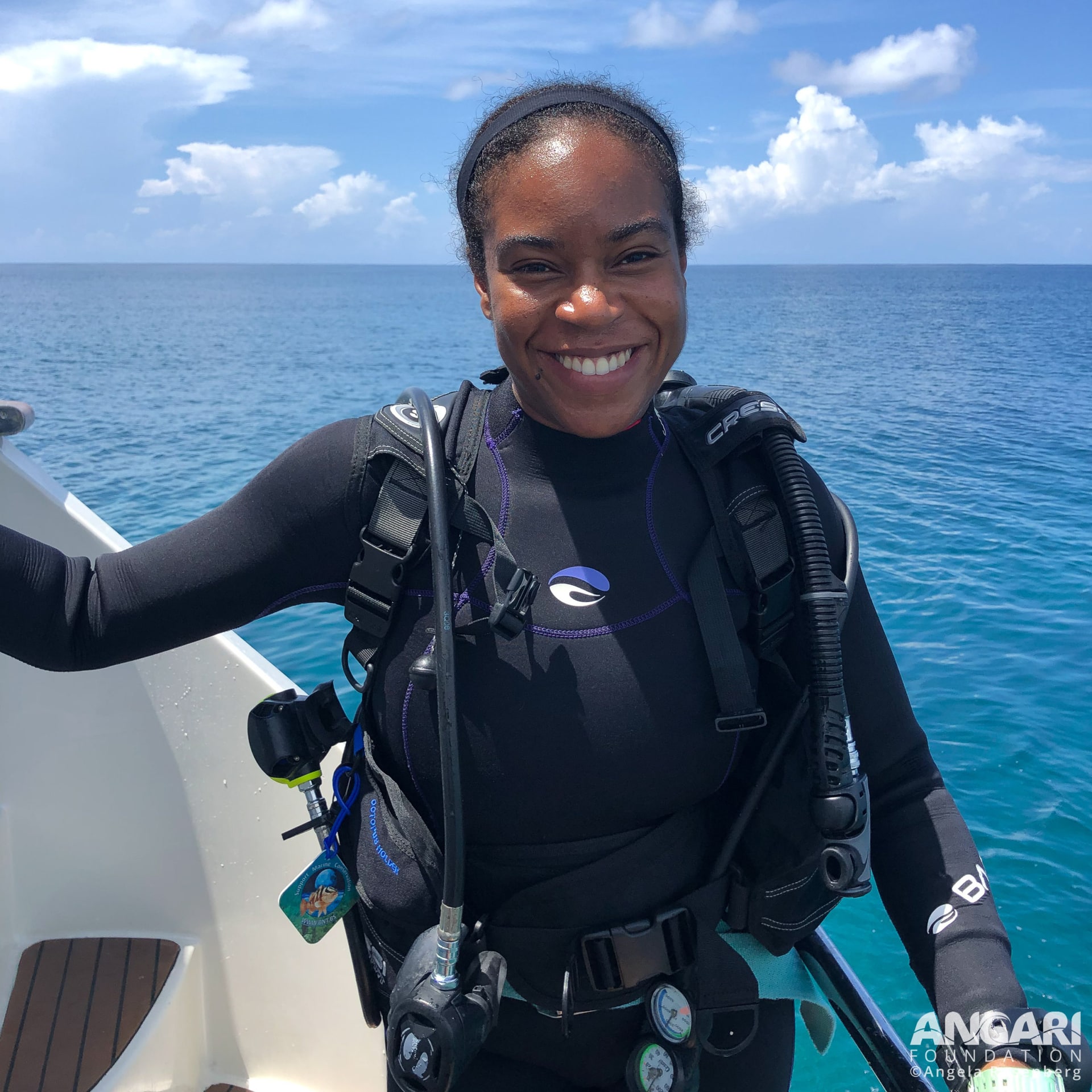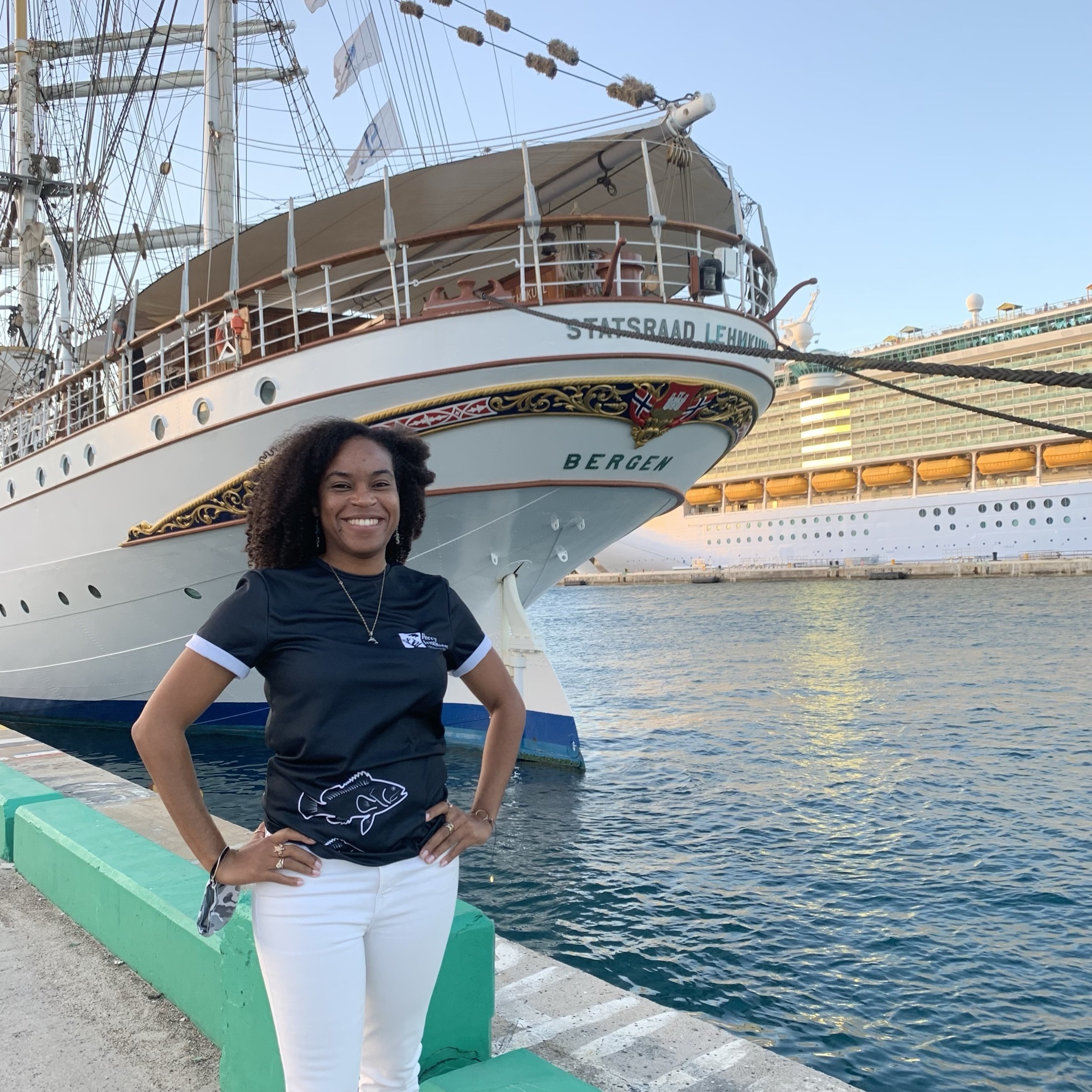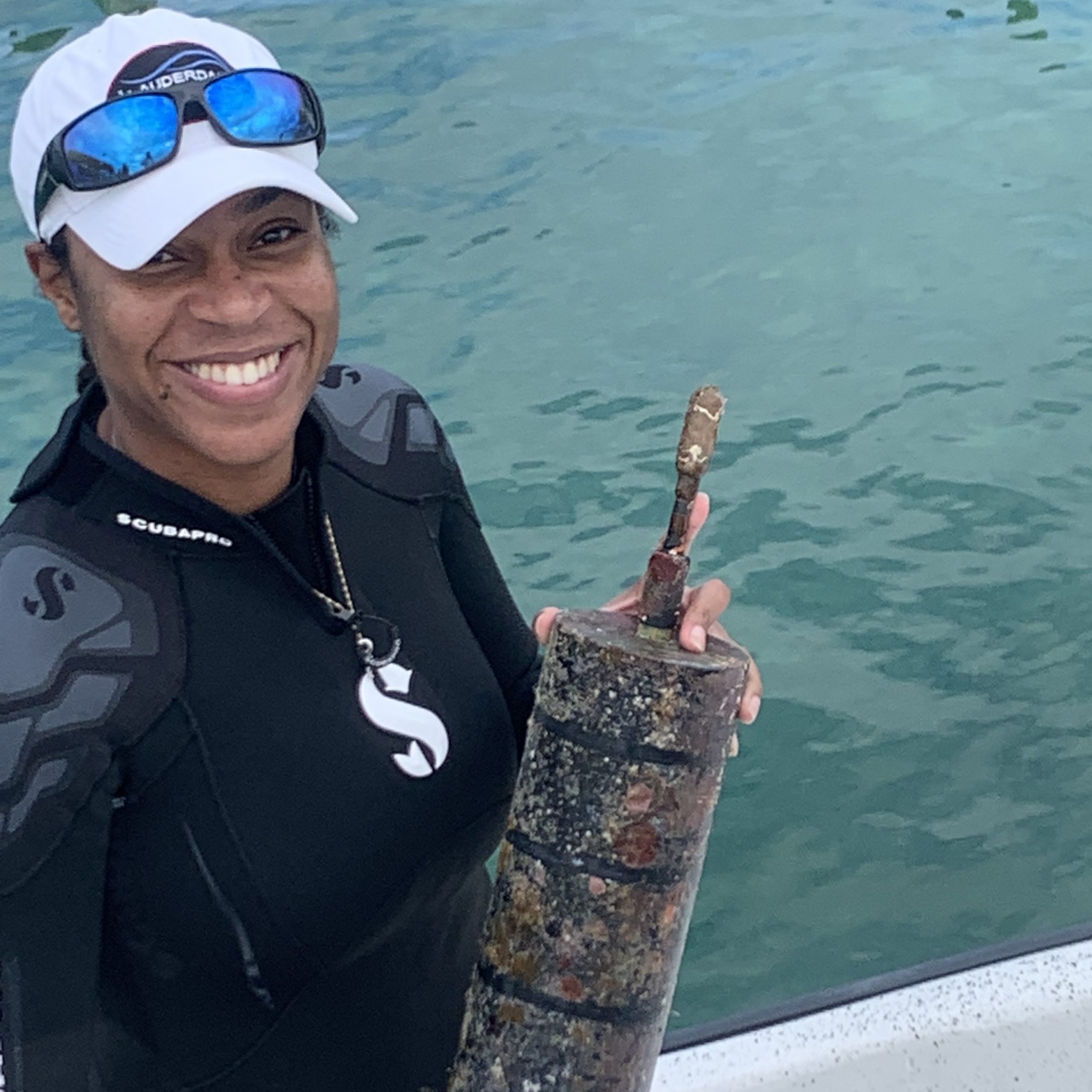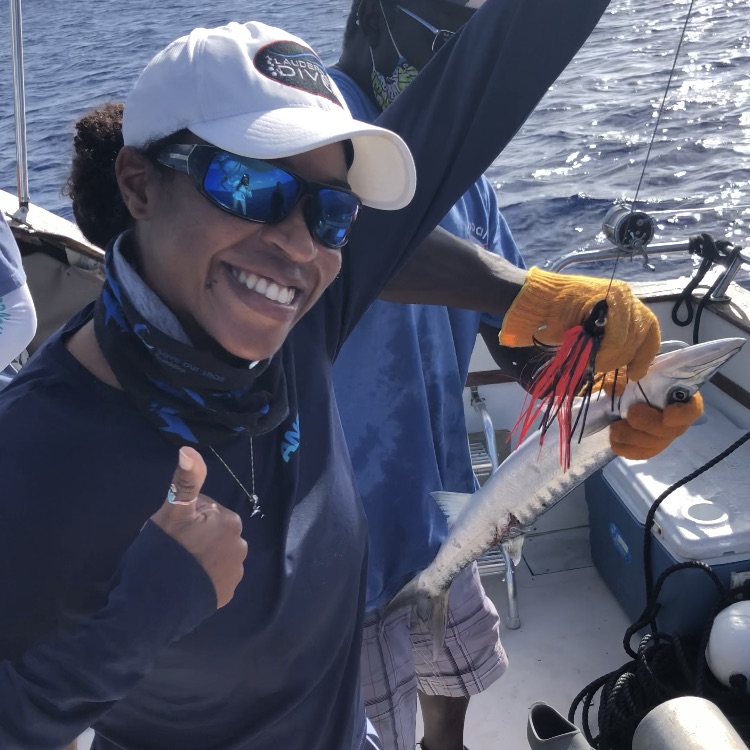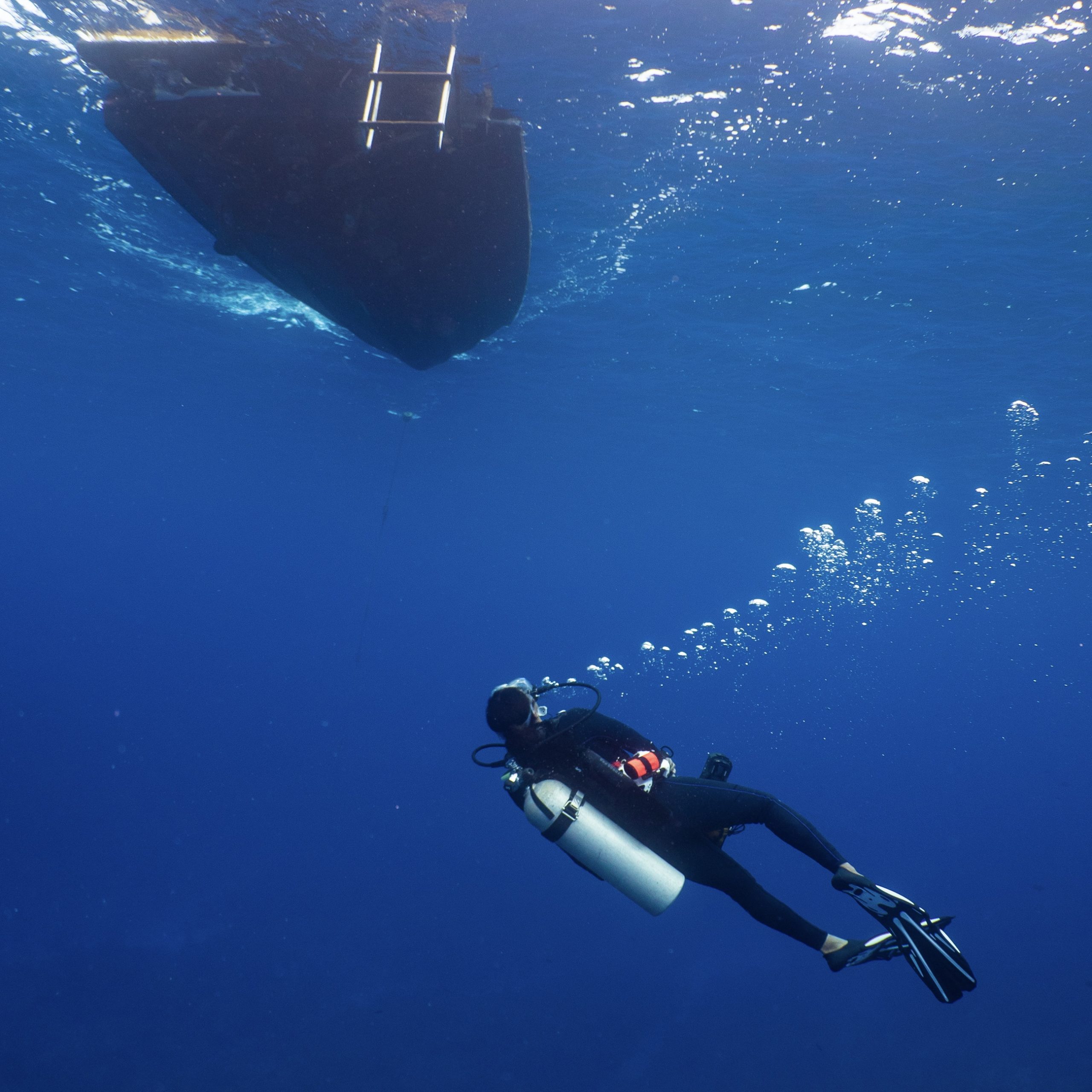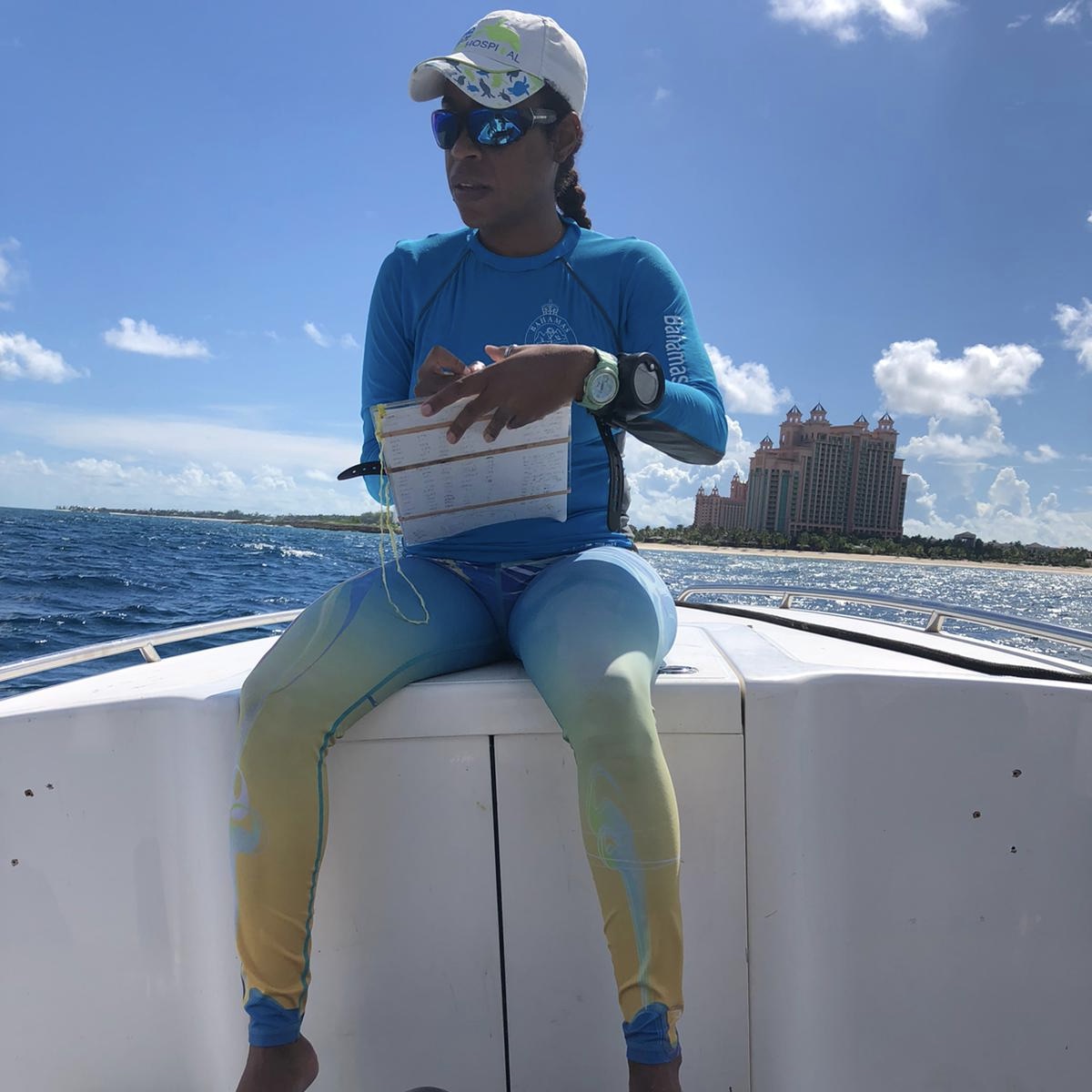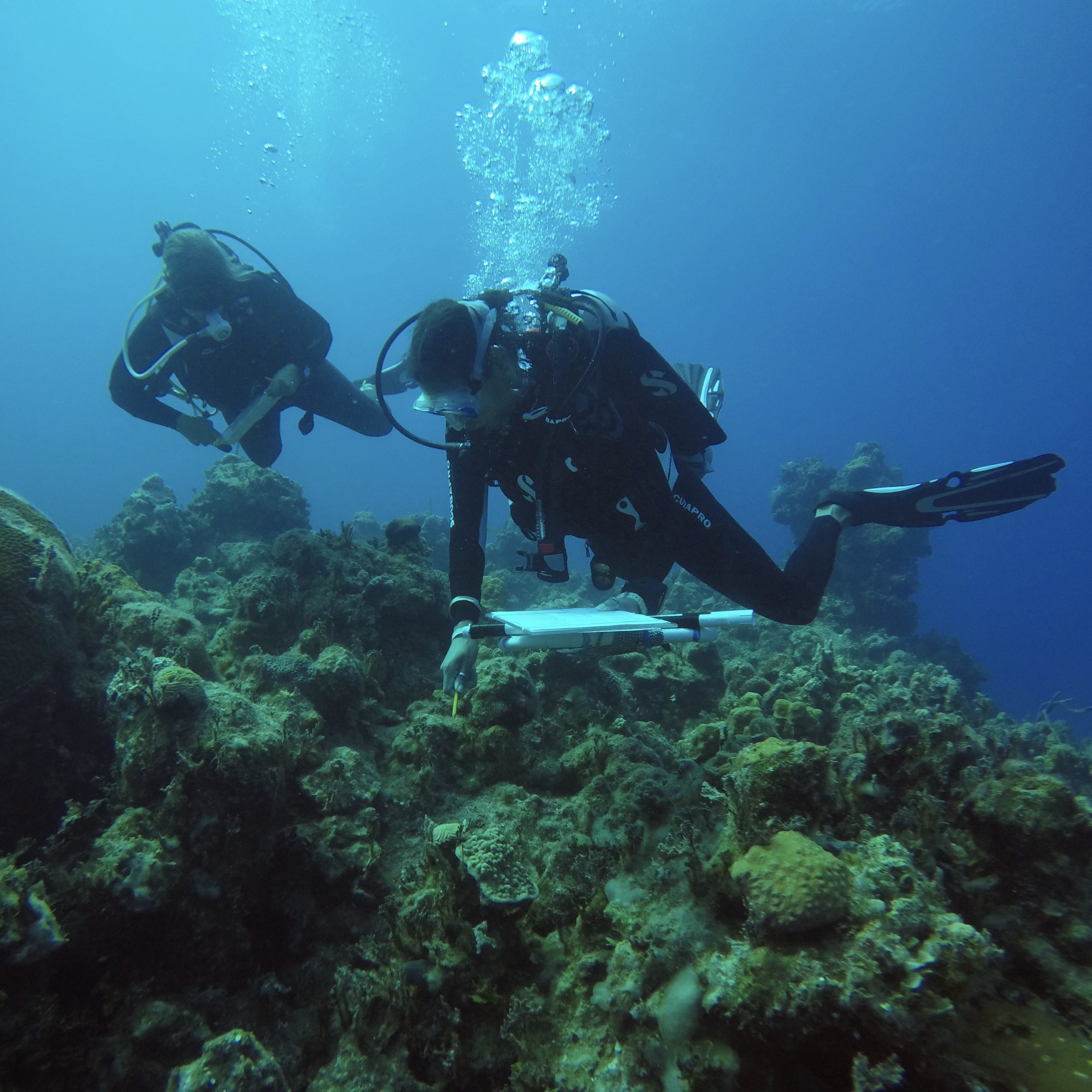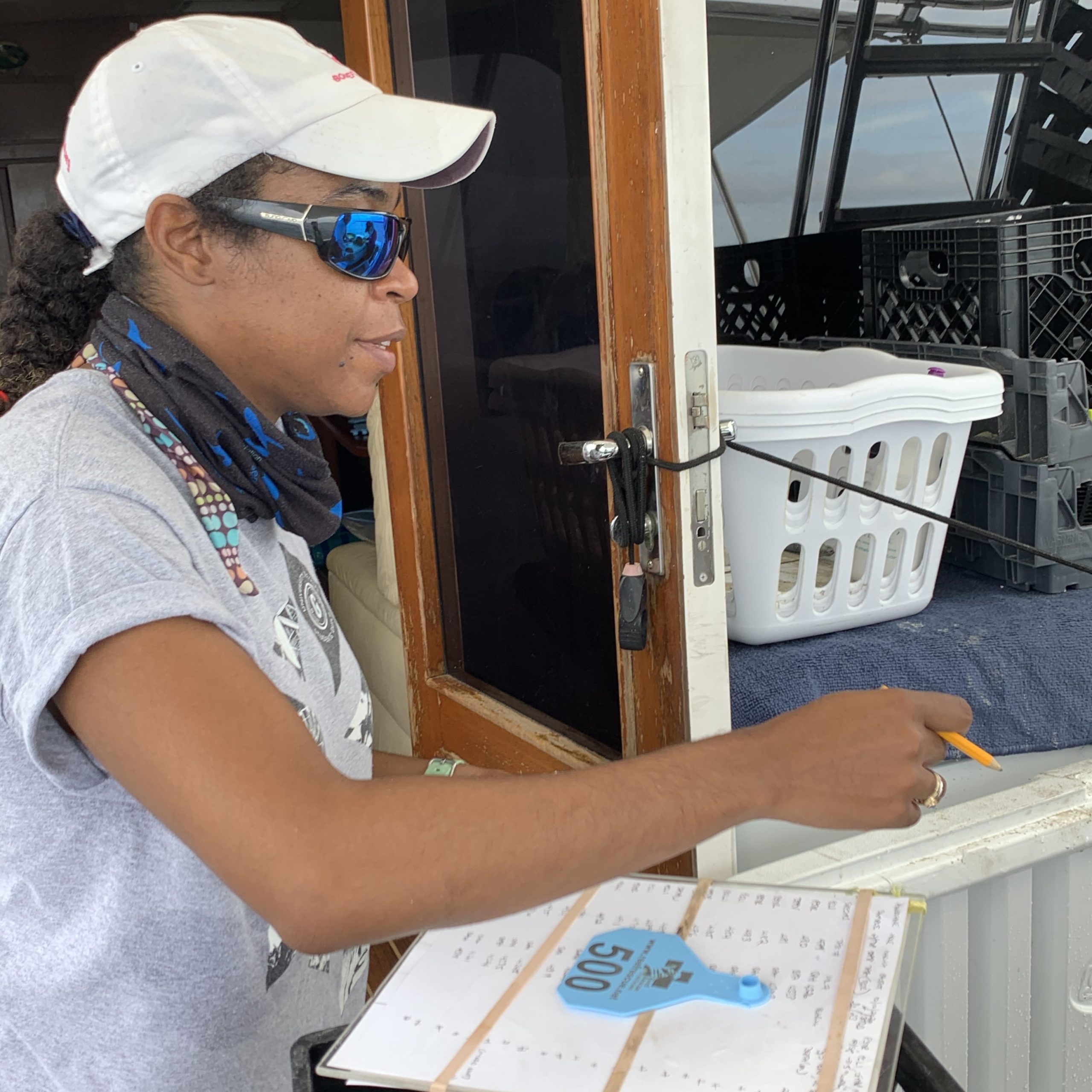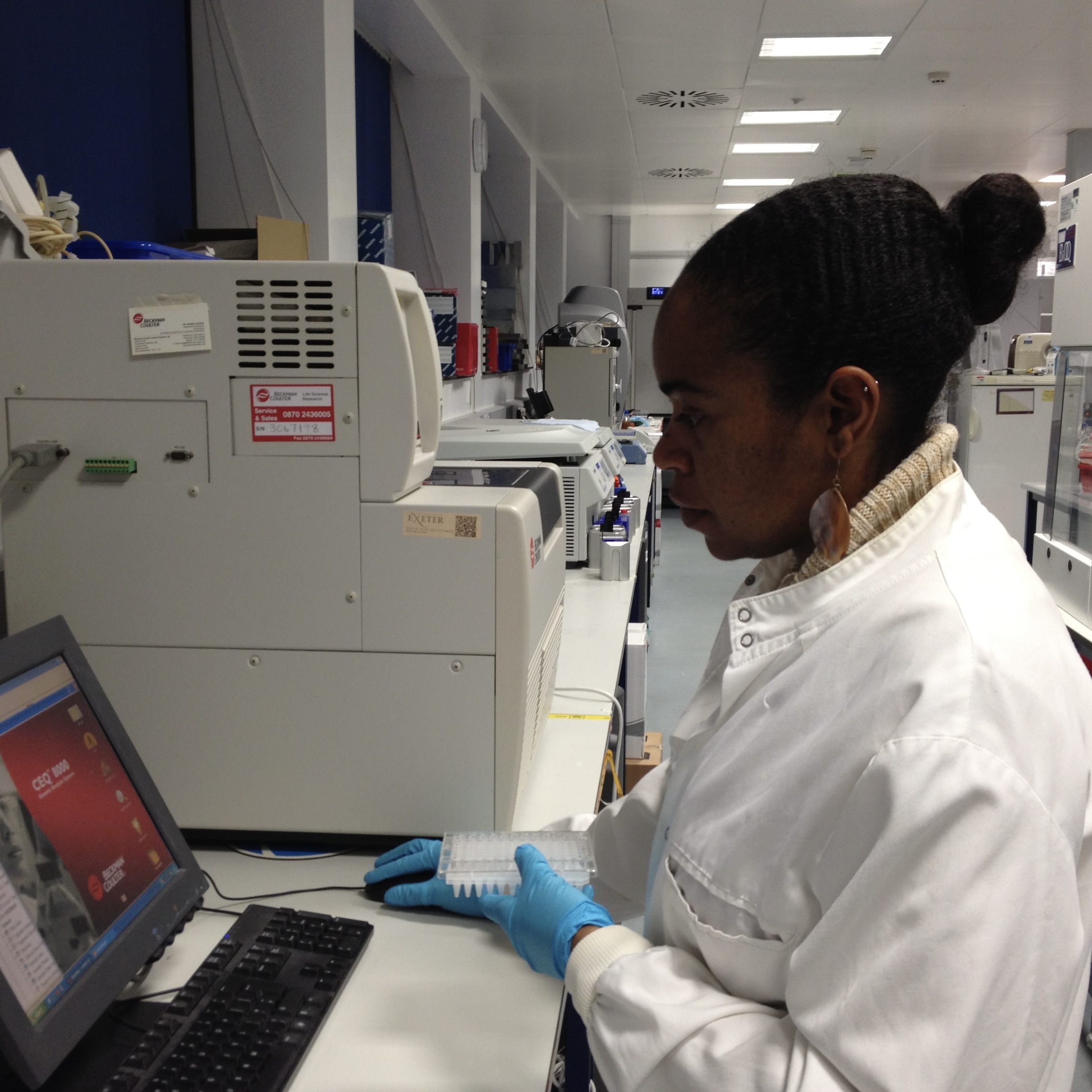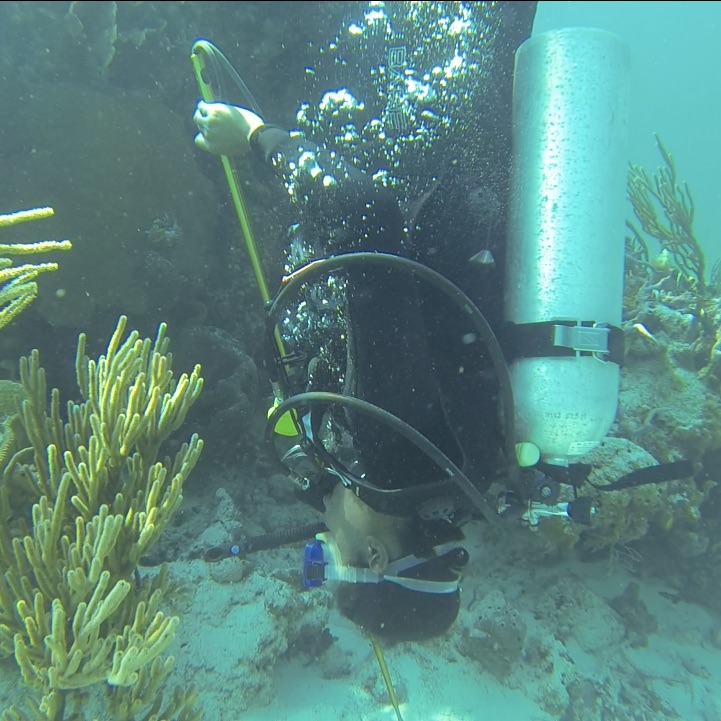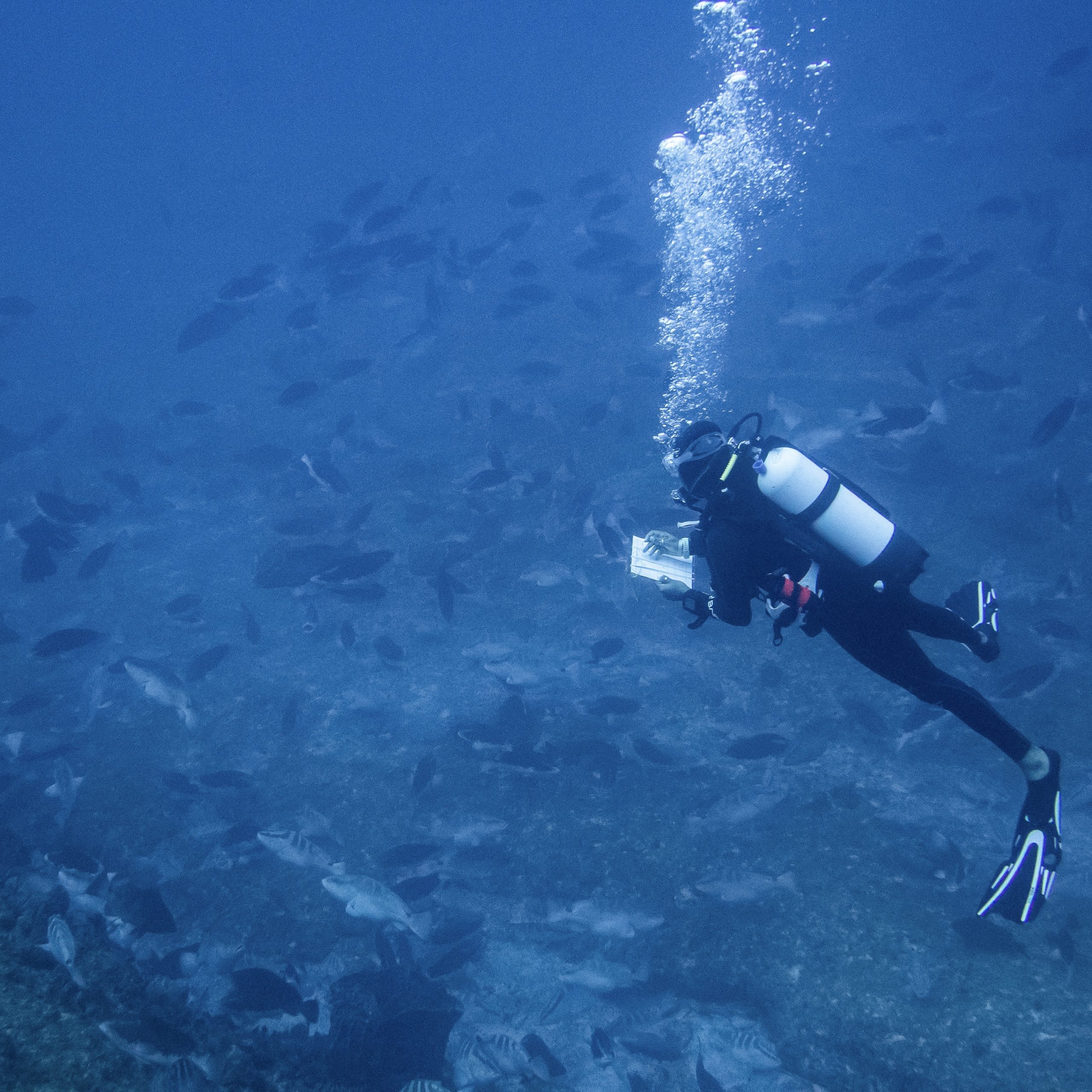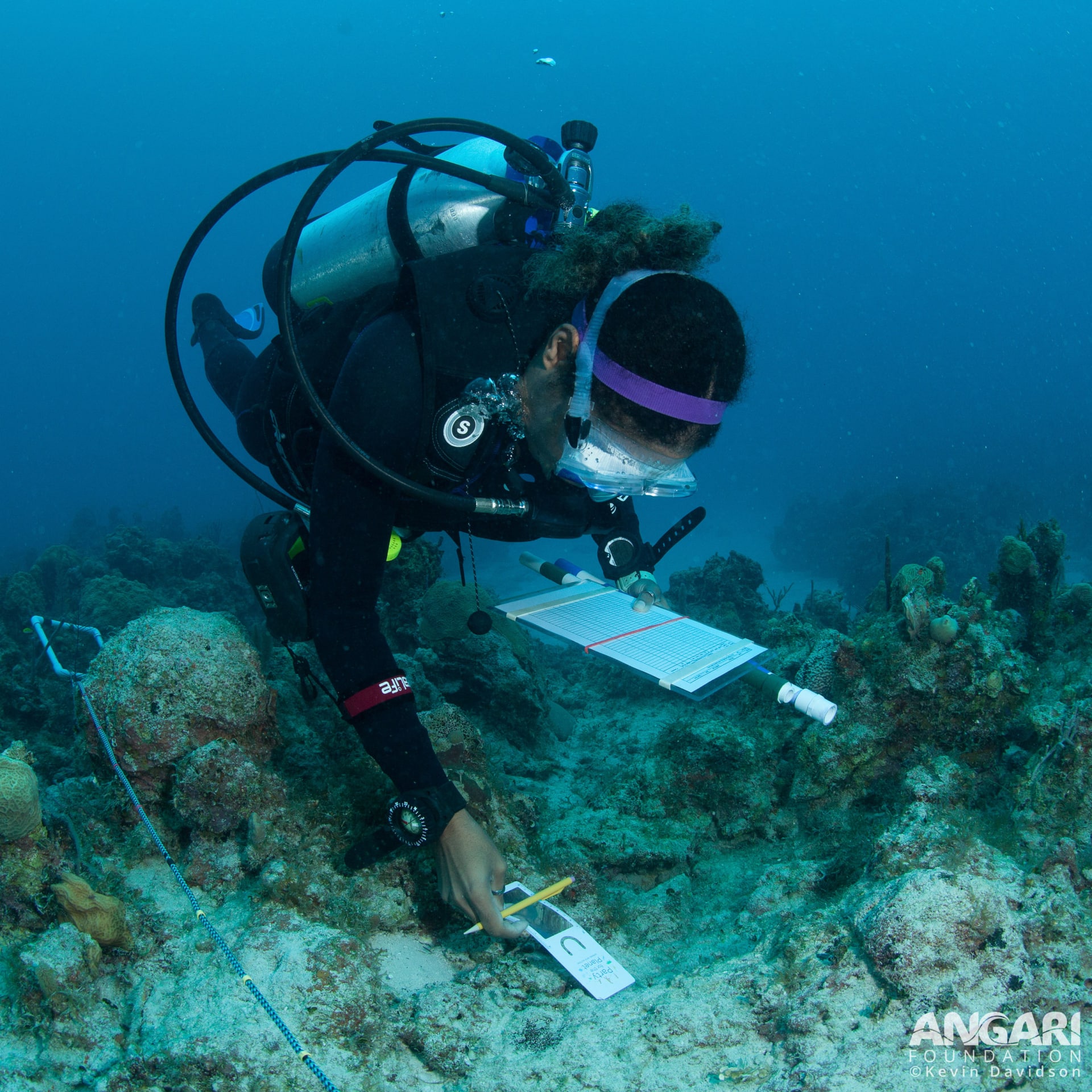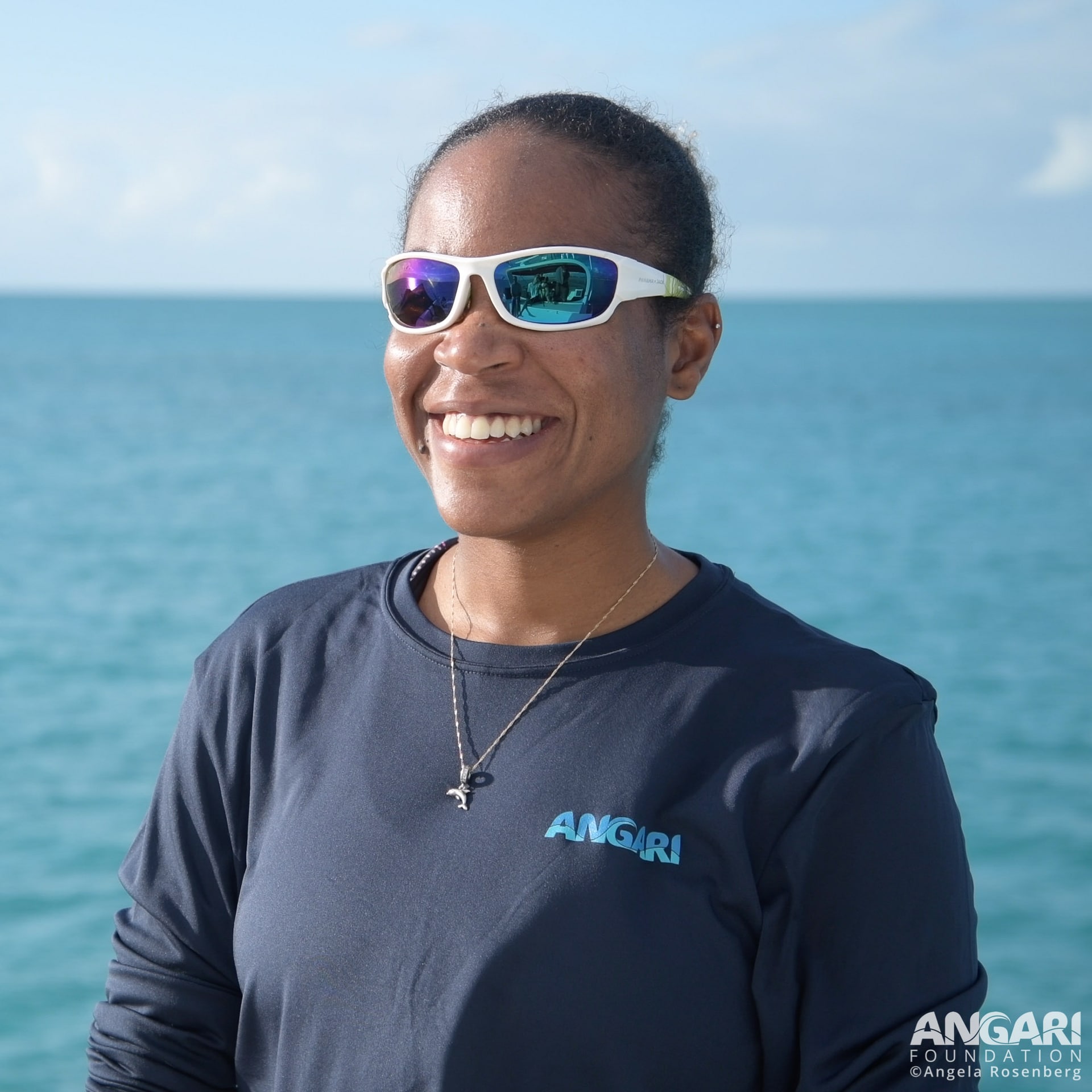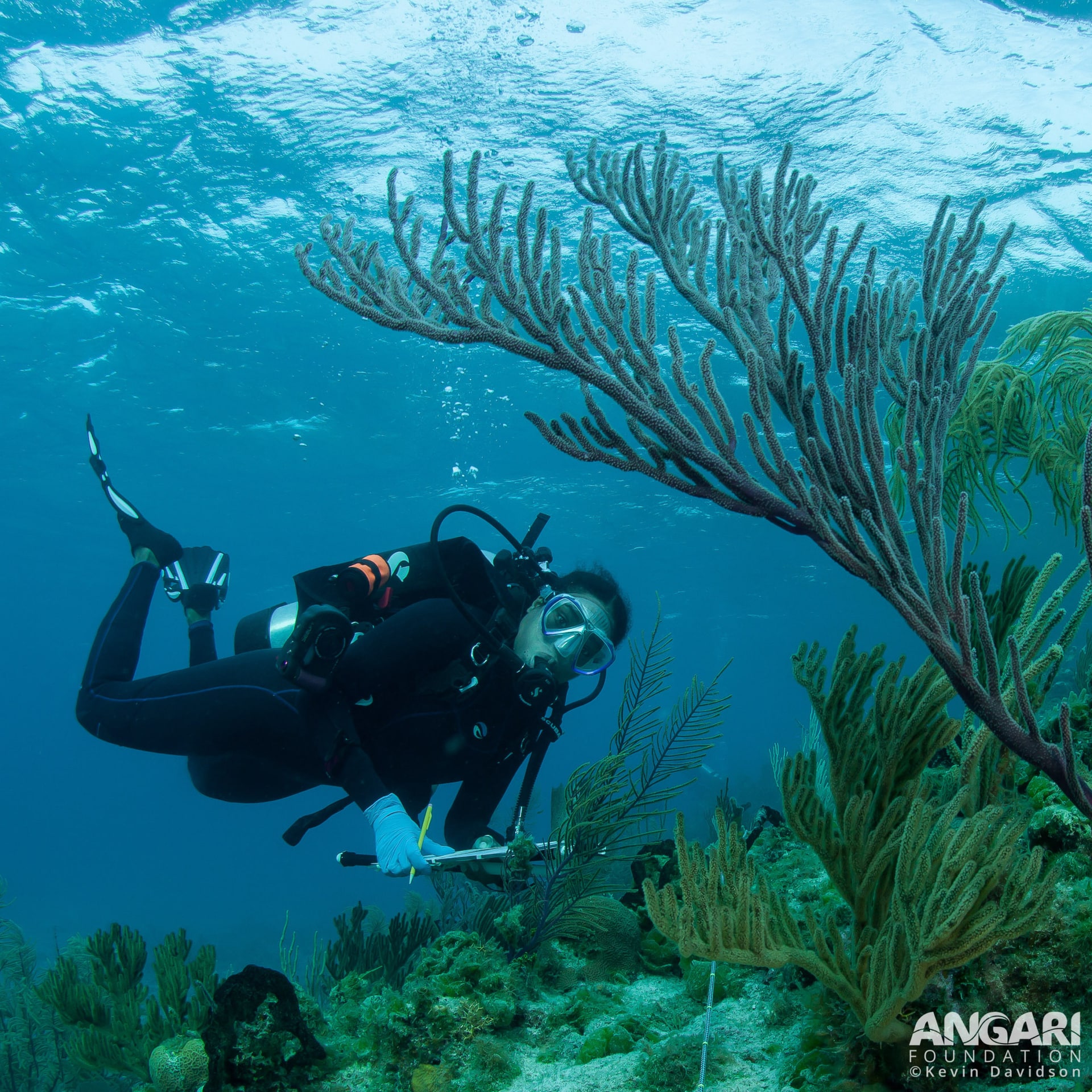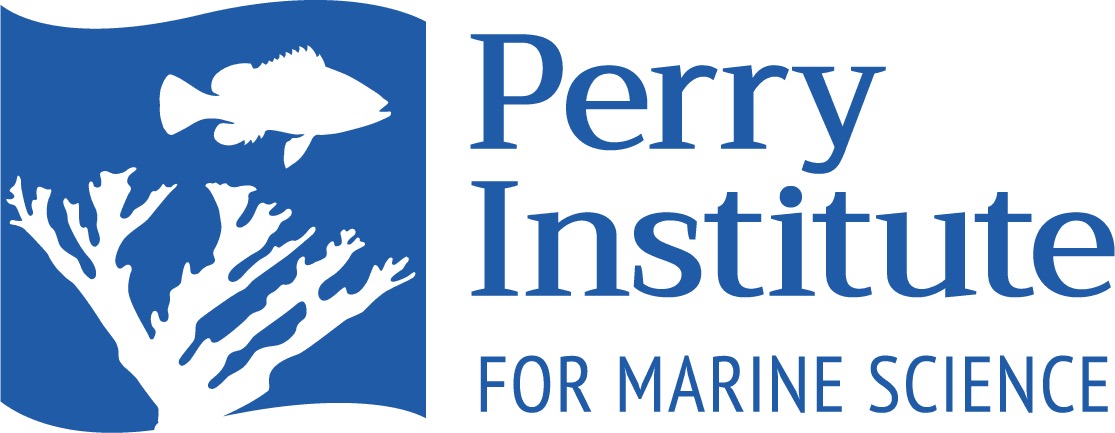
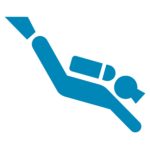
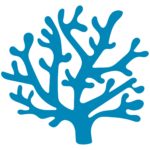
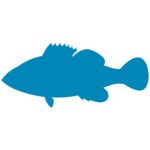
Meet Krista Sherman
I am a marine scientist with over a decade of research and conservation experience currently working as a Senior Scientist at Perry Institute for Marine Science (PIMS). Having completed my Ph.D. in Biological Sciences at the University of Exeter, I am the first Bahamian female with a Ph.D. in marine science. My Ph.D. work assessed the status, population structure and dynamics of Nassau grouper spawning aggregations and was critical to the development of the first Nassau Grouper Conservation Management Plan for The Bahamas. Before earning my Ph.D., I worked as a Project Coordinator & Science Officer at the Bahamas National Trust; Research Associate & Advisor at Cape Eleuthera Institute and Island School; and Aquarist at Atlantis. I have extensive marine animal husbandry and research experience, including assessing impacts of invasive lionfish on native species and ecosystems, monitoring coral reef, mangrove and seagrass habitat health, coral restoration, and Rapid Ecological Assessments for proposed Marine Protected Areas. I also hold an MRes in Ocean Science from the University of Southampton and BSc in Marine Science from Jacksonville University.
2018 Ph.D. Biological Sciences, University of Exeter
2008 M.S. Ocean Science, University of Southampton
2005 B.S. Marine Science, Jacksonville University
Get To Know Krista
My schedule has been atypical for the past two years, but it varies a bit depending on whether I’m conducting fieldwork/or not and the type of fieldwork I’m engaged in. Non-field days are typically comprised of a lot of writing (e.g. to produce technical reports and peer-reviewed publications), data management and analysis, meetings and some administration (e.g. responding to emails, completing expense reports, timesheets). Field days are usually 10-12 hours long and consist of diving and/or snorkeling during the day (evening-nights too for grouper spawning work) and data entry and image sorting and storage at night.
Spotted eagle ray 😊 because I love ‘em and think they’re cool!
I’ve been a water baby since I’ve known myself and growing up in The Bahamas definitely made that easier. I chose to pursue a career in marine science because of my passion and love for the ocean and realized early on that I was particularly interested in applied conservation research. So, I made a conscious decision to design projects around pressing local issues for my graduate studies – invasive lionfish for my Master of Research degree and Nassau grouper conservation for my PhD.
The first time I dove on a Nassau grouper spawning aggregation was 2010 and it was one of the most extraordinary and thrilling underwater experiences I’ve had. Observing declines of fish at these spawning sites (which is how they reproduce) made me wonder what impact this was having on their populations. So, I designed my PhD to help address this and other questions identified as national priorities. The overall aim of my PhD was to use complementary approaches to generate information required to further advance management for critically endangered Nassau grouper populations in The Bahamas. I used a suite of methods including population genetics, acoustic telemetry, spawning aggregation surveys, and stakeholder assessments to evaluate the status of Nassau grouper and develop the first conservation management plan for this species.
I doubt the average Bahamian was aware of this (especially in the early stages), but the science & conservation professionals were and they recognized the critical importance of this work. I’m grateful for the in-kind staff support from several organizations that assisted with various aspects of the project (e.g. for fieldwork and stakeholder assessments). I received financial support via partial scholarships from the Lyford Cay Foundation and Rotary Club of East Nassau and family and friends also donated through a crowd-funding page I established to help offset tuition costs for one semester. Yes, I think awareness of Nassau grouper research has improved over time, and I partly attribute this to following the advice of two of my friends and former colleagues (Lindy Knowles and Regina Smith) who encouraged me to create a platform to share updates with the public. I considered a few options and ended up using social media – (Nassau Grouper 242) on Facebook and Instagram because of its ease and accessibility. Now that I’m working for the Perry Institute for Marine Science, updates are also circulated across all our communication platforms, blog posts, press releases, etc. Financial support for conducting Nassau grouper research remains a challenge, however, but partnerships with other scientists, small grant funding and occasional boat donations have enabled some of this work to continue.
It’s been incredible to watch the field of marine science become increasingly interdisciplinary, diverse and collaborative. We’re able to learn from each other and combine our limited resources to comprehensively address research goals and objectives more efficiently.
People’s beliefs and misconceptions can slow or prevent progress for marine conservation. This is extremely frustrating and counterproductive, but it does emphasize the importance of inclusivity and the necessity of better communication with all stakeholders (from the public to policymakers).
Marine science is a broad field and it may take some time to figure out what you’re most interested in. Gain as much experience as you can – volunteer, apply for internships and do your work properly. Professionalism is extremely important and the connections you make early in your career can often help you in the future.
Connecting with nature – specifically the ocean (e.g. free-diving, snorkeling, SCUBA diving or simply sitting or walking along the beach) keeps me inspired and re-invigorated. It’s my zen/happy place. 😊
Science has always been and will always be a huge part of my life. I’m fortunate that I have a career that allows me to do what I love. As a marine scientist, I have conducted research all throughout The Bahamas (even remote areas like Hogsty Reef) and often travel internationally (e.g. Caribbean, UK, Singapore, South America, USA) to present at conferences, symposiums and other professional meetings or receive training. One of the beautiful things about science is its evolution. I’m excited to continue learning and develop new partnerships to engage in research that is beneficial for promoting resilient marine species and ecosystems.
Interview conducted in April 2022

